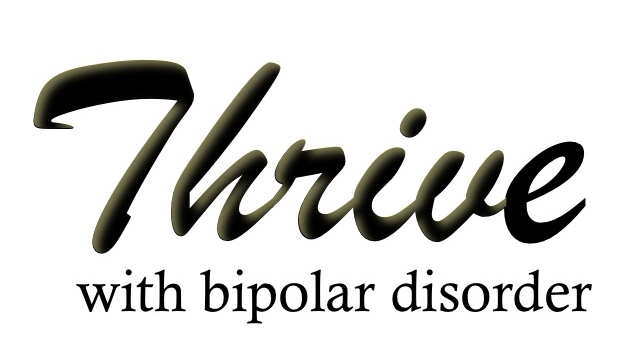This blog series is dedicated to everyone Newly Diagnosed with Bipolar Disorder. Welcome to the club! You have unwillingly joined an elite club in which some of the members are among the most brilliant, creative and talented in history.
Unfortunately there is no manual that comes with our bipolar disorder diagnoses when becoming a member of this club.
This blog will be followed by a series of blogs called “Newly Diagnosed With Bipolar Disorder Club”. Each blog will address issues that members have shared with me or issues I or clients I have worked with when newly diagnosed face.
Today’s topic is coping with medication and medication compliance.
Topics coming soon based on members’ request will include:
- Building daily routine and structure
- Developing sleep patterns
If you would like to make a request for this series, please contact me and I will be happy to address your concern.
Today”s Topic:
The #1 problem that people have when joining this club is coping with medication and medication compliance.
There are not many people in a club like ours where the medication completely changes your experience of yourself.
Our medications may change:
- Our energy and exuberance level
- Our ability to feel the rich emotion of emotion
- How we think
- How we express ourselves
- Our creativity and innovation
- Our memory
- Our weight
- Our ability to be super productive and goal-focused
*Note: Not all medications cause these effects, but all medications are mood stabilizers which function to reduce emotional extremes.
Nobody would want to take medication if it did changed who they are AND keeps them from feeling like themselves and maybe weird or slightly off at first.
This is why we, the members of this club, are so strong and courageous. Each one of us has a different reason for why we are willing to sacrifice the amount of some these of these things. I made this sacrifice because I was willing to do anything I possibly could to prevent myself from experiencing the peak of full-blown mania and feeling like I am dead in depression. Some of the people I’ve had the privilege of working with shared with me that they made this sacrifice because medication made their quality of life so much better. They got to experience stability for the first time. It improved their abilities to function at work and improved their quality of relationships.
Most often, the consequences of not making the sacrifice are far more painful than what there is to gain by taking medication.
It’s a hard choice to make, but something we remember by taking our medication every day at the same time.
Before continuing on to an activity, take a moment and ask yourself what has you committed to being on medication.

Now that we understand why we are committed to being on medication, let’s explore how to cope with the losses:
The loss you experience is a death because it is that significant of a loss therefore in order to cope, I invite you to mourn the loss for a specific set amount of time before taking actions to explore your new life.
Ways to take action and help mourn the loss of your manic and depressive self:
1. Write down the qualities you miss.
Examples: creativity, exuberance, productivity, passion, emotion etc
2. Write down what you miss about each quality.
3. How did it affect your life?
4. How did you feel when you experienced it?
5. What did you tell yourself about yourself when you experienced it?
6. What abilities did each quality give you?
7. What qualities or parts of qualities did you get to keep?
8. What new abilities do you have because of being on medication?
9. What action are you willing to take to further develop these abilities?
* This is an activity that could be very useful done in therapy if it feels overwhelming to do on your own.
Here’s one example put in action from my life.
1. Write down the qualities you miss.
I miss my exuberance that was expressed through passion and an energy that completely filled the room.
2. Write down what you miss about each quality.
I miss the feeling I had when I walked into the room and the affect my presence had on people. I felt special. I felt wanted. It felt so good to make people smile. (I wasn’t aware of how uncomfortable it made some people until I was in graduate school.)
3. How did it affect your life?
People relied on my presence to make them feel good. I relied on my presence as a way to not be vulnerable because I always had a smile on my face and was a burst of energy. It made it easy for me to meet people and engage groups of people.
4. How did you feel when you experienced it?
Wanted. My presence made people’s day. I felt passionate and alive. I felt seen. At times insecure because with age, I could feel that it made people uncomfortable.
5. What did you tell yourself about yourself when you experienced it?
People like me. People want me around. My presence matters and makes a difference. I make people’s days better.
6. What abilities did each quality give you?
The ability to be free and break social rules (which I didn’t inherently know what they were anyway). I could get away with so much because I did everything with a smile on my face.
7. What qualities or parts of qualities did you get to keep?
I still have my passion and exuberance, but it has changed form. Now I’m a light in the room, instead of completely filling the room. I am not overwhelming. My energy is more relaxed and channeled, yet still very passionate. My energy isn’t as anxious and manic, except when I go to the doctor.
8. What new abilities do you have because of being on medication?
I am able to feel peace and centered. I don’t feel the need to be “on” or performing all the time. Instead, I feel more genuine because I don’t always have to have a permanent smile on my face. I’m able to use the abilities I’ve always had with more ease. I could go on and on…it has been tremendous.
9. What actions are you willing to take to further develop these abilities?
Focus on my breathing during to increase my feelings of peace and centered. Continue to be transparent about what I’m thinking and feeling and continue being honest when I’m not able to be what people expect from me.
If this is helpful, feel free to contact me with interests for future blogs.
 When people have suicidal thoughts and desires, we so often dance around those thoughts and feelings.
When people have suicidal thoughts and desires, we so often dance around those thoughts and feelings.











